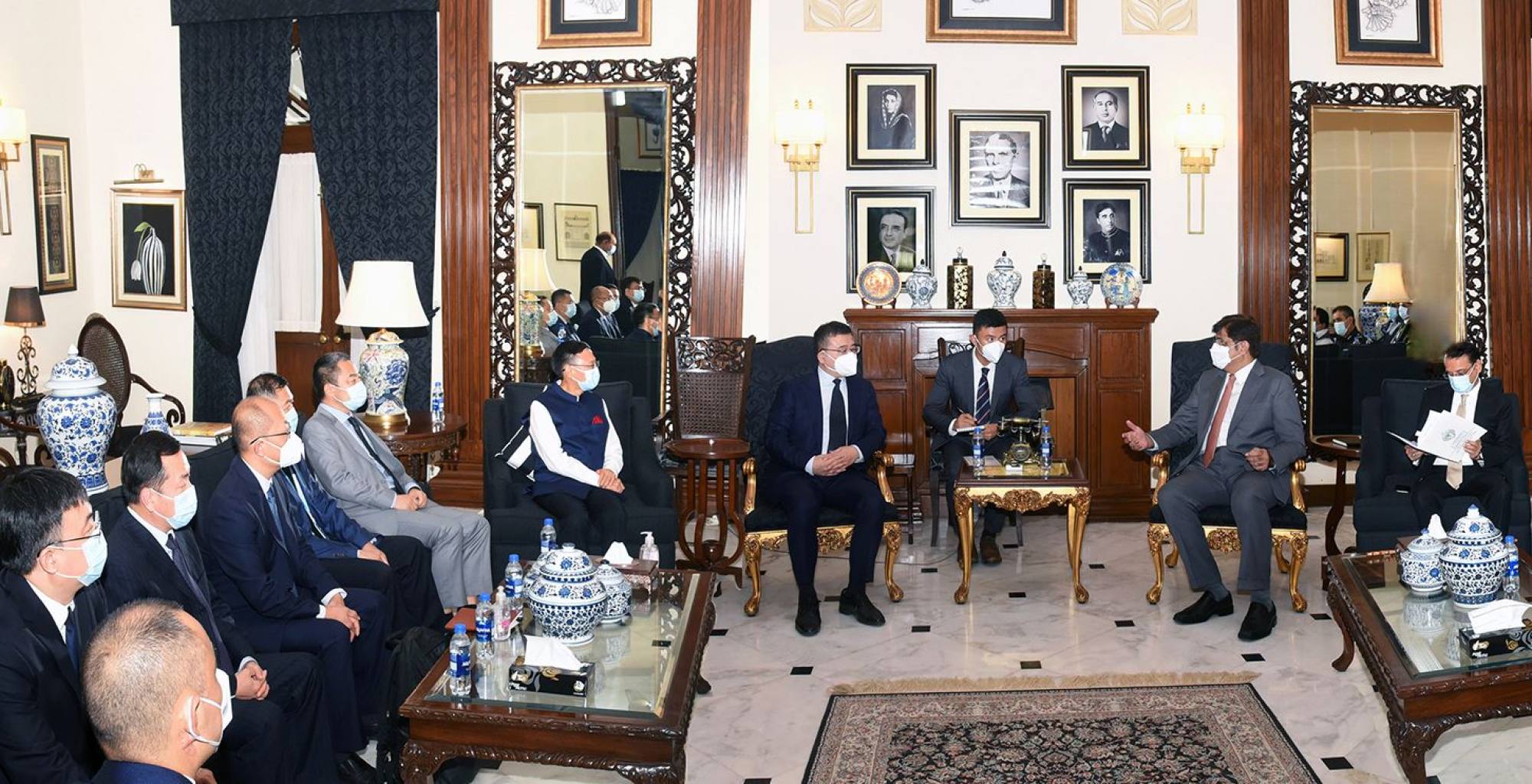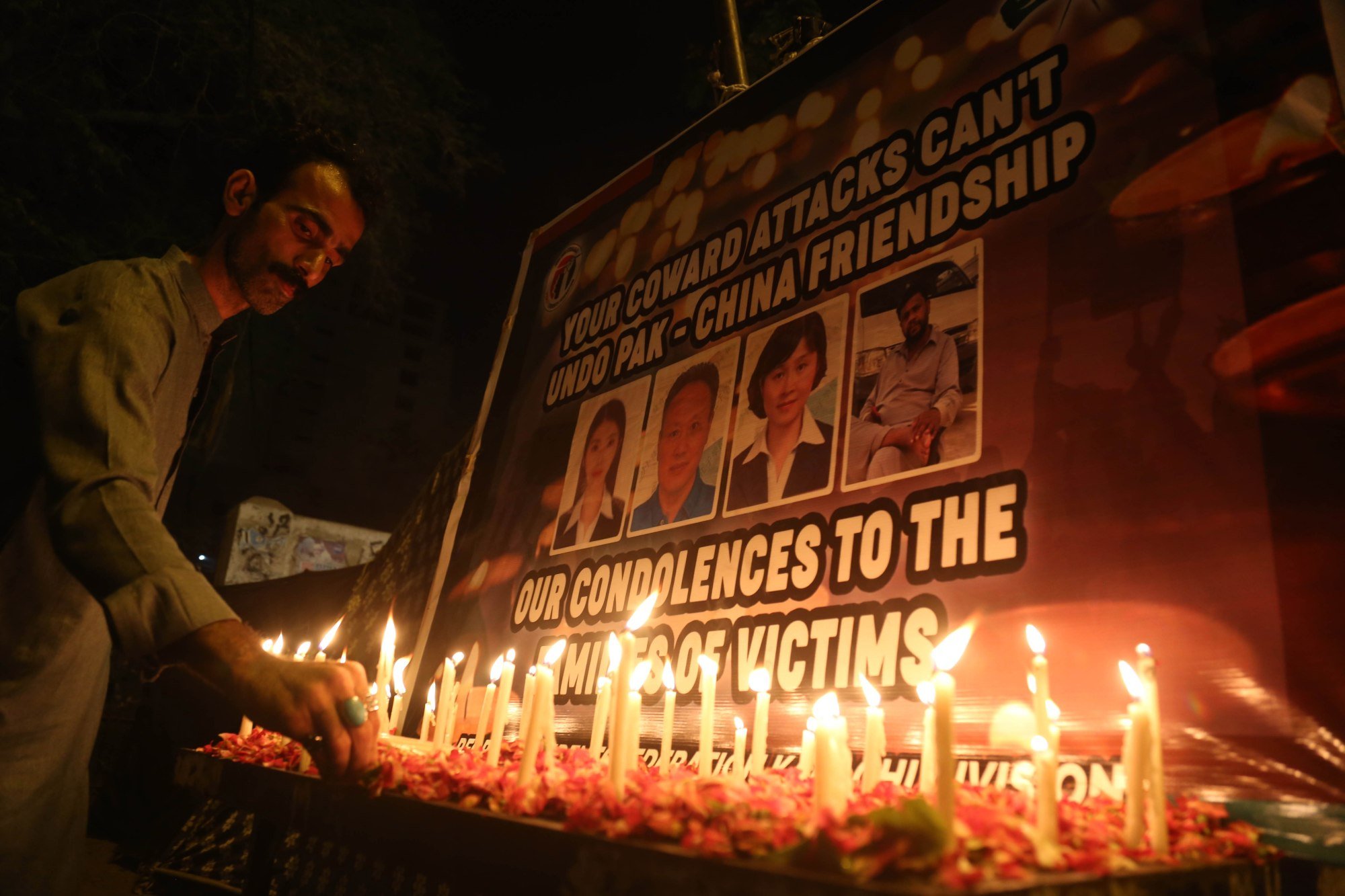
Pakistan arrests ‘important accused’ suspect linked to Karachi’s Confucius Institute blast that killed 3 Chinese teachers
- In April, a female suicide bomber belonging to the separatist Baloch Liberation Army blew herself up near a van inside the university campus
- April bombing was first major attack against Chinese nationals in Pakistan since July 2021 when a suicide bomber targeted a passenger bus in northern Pakistan
Pakistani officials on Tuesday said a key suspect linked to the blast at the University of Karachi’s Confucius Institute that left four people dead in April had been arrested.
Three Chinese teachers and their Pakistani driver were killed when a female suicide bomber belonging to the separatist Balochistan Liberation Army (BLA) blew herself up near a van inside the university campus. The attack also wounded a fourth Chinese national and a Pakistani guard accompanying the vehicle.
The police chief did not provide any details on the suspect.
In a press conference on Tuesday, the Information Minister of Sindh province, Sharjeel Inam Memon, said the attack was jointly organised by the BLA and another group, the Balochistan Liberation Front (BLF).
“During the investigation process, the suspect made important revelations. He said that he was the Commander of a BLF sleeper cell in Karachi,” Minister Memon was quoted as saying by Dawn newspaper.
The minister said the suspect met with the husband of the female suicide bomber, Haibastan Bashir, and another “important terrorist” named “Zeb”.
The suspect revealed during investigations that Zeb was the attack’s mastermind, and had entered Pakistan from a “neighbouring country,” he said.

The visiting Chinese officials on Monday met Sindh Chief Minister Syed Murad Ali Shah and discussed security measures for Chinese nationals working in the province.
The emissaries said they were liaising with the provincial counterterrorism department to bolster the intelligence-gathering capabilities of the Sindh police.
Islamabad has been under pressure from its long-time ally Beijing to punish the perpetrators and prevent such incidents from happening again.
According to police data, Shah said more than 3,000 Chinese nationals were working in Sindh, with most of them involved in infrastructure projects linked to the China-Pakistan Economic Corridor (CPEC) which is worth an estimated US$60 billion.

He added that 3,361 security personnel, including policemen, soldiers and private guards had been deployed to protect Chinese citizens.
The April bombing was the first major attack against Chinese nationals in the South Asian nation since July last year when a suicide bomber targeted a passenger bus in northern Pakistan that killed 13 people, including nine Chinese working on a hydroelectric project.
Other attacks on Chinese working in Pakistan have taken place in the south-western province of Balochistan where militants have waged an insurgency against authorities in a state where China develops mines and a port.
Balochistan houses a deep water port in Gwadar city which Beijing is building under the CEPC to link the area with western China.
In 2018, the Baloch separatists also attacked the Chinese consulate in Karachi, killing three assailants, two police officers and two civilians.
In the press conference, the Sindh information minister Memon said the attack was part of efforts by other countries hoping to “stop foreign investment from coming in”.
“Work is under way on different projects. Important schemes such as the China-Pakistan Economic Corridor (CPEC) are under way with the help of brotherly nations like China,” he said, according to Dawn. “These terrorist organisations, with their nefarious designs and a foreign agenda, want to destabilise the country. They want to give the message that Pakistan is not safe for foreign investment.”
